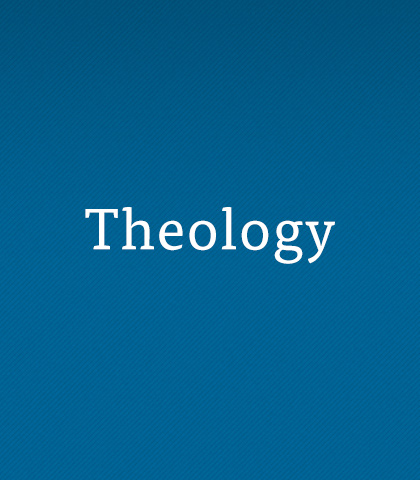Things That Strangle Us
The term worry is derived from the old German word wurgen, which means "to choke." Somehow, by extension, the word came to denote "mental strangulation," and, finally, to describe the condition of being harassed with anxiety.

What words come to mind when you hear the term theology? Dry…Dreary…Doubtful…DULL? You’re not alone.
Too often we don’t realize that theology—thinking about God—is an intimate part of our everyday lives, rather than something that takes place in ivory towers crowded with bearded men crouched over dusty books. We each engage in theology because we each have a set of beliefs about God. But rather than being content with our ideas about God as they now stand, we should each have a desire to know God better than we do today. If you’ve got that desire, then you’re ready to do theology!
Let these resources point the way to a faith more deeply connected with who God actually says He is.
The term worry is derived from the old German word wurgen, which means "to choke." Somehow, by extension, the word came to denote "mental strangulation," and, finally, to describe the condition of being harassed with anxiety.
To summarize Scripture, the issue is not that possessions are wrong. It’s our attitude toward them. It is the LOVE of money and things that Scripture condemns. Anything we trust in besides God is an idol.
Does this mean that since a Christian who commits suicide won’t go to hell we can relax and not worry so much about it? No. We need to understand the factors, especially depression, which can lead to suicide even for Christians.
There is a difference between opinions and fact/truth claims. When someone claims Jesus is not God, that’s an opinion. When Jesus says that He is God, that is a fact/truth claim. And the truth of His statement is based on objective reality.
As Christians, we believe there are absolute values and morals because God who created this world has designed it to work according to His attributes of goodness and love. It malfunctions when people do not live according to His will.
As we encounter life’s trials, we can remain confident that the Potter, who causes all things to work for our good, kneads and reshapes us to fashion something beautiful, useful, and practical.
We all try to make sense of and explain the reality around us. Theists believe in God and attribute the world’s existence and working in some way to that God (or gods). Atheists, agnostics, and skeptics have a different explanation.
Every student needs to adopt four strategies to make sure the truth takes root in his or her life: make a personal commitment, become a loyal student of the Bible, practice the truths of Scripture, and share Christ with someone else.
Waiting on the Lord means we are looking to Him for grace—the desire and power needed in a situation. Sometimes we know the thing to do, but don’t want or desire it. We need to wait on the Lord to supply even the desire to do the right thing.
Acceptance or rejection of Christ’s work on the cross determines our destiny of heaven or hell. But how we live—choosing to sin or not—and the kind of sin we commit matters now, and for eternity.